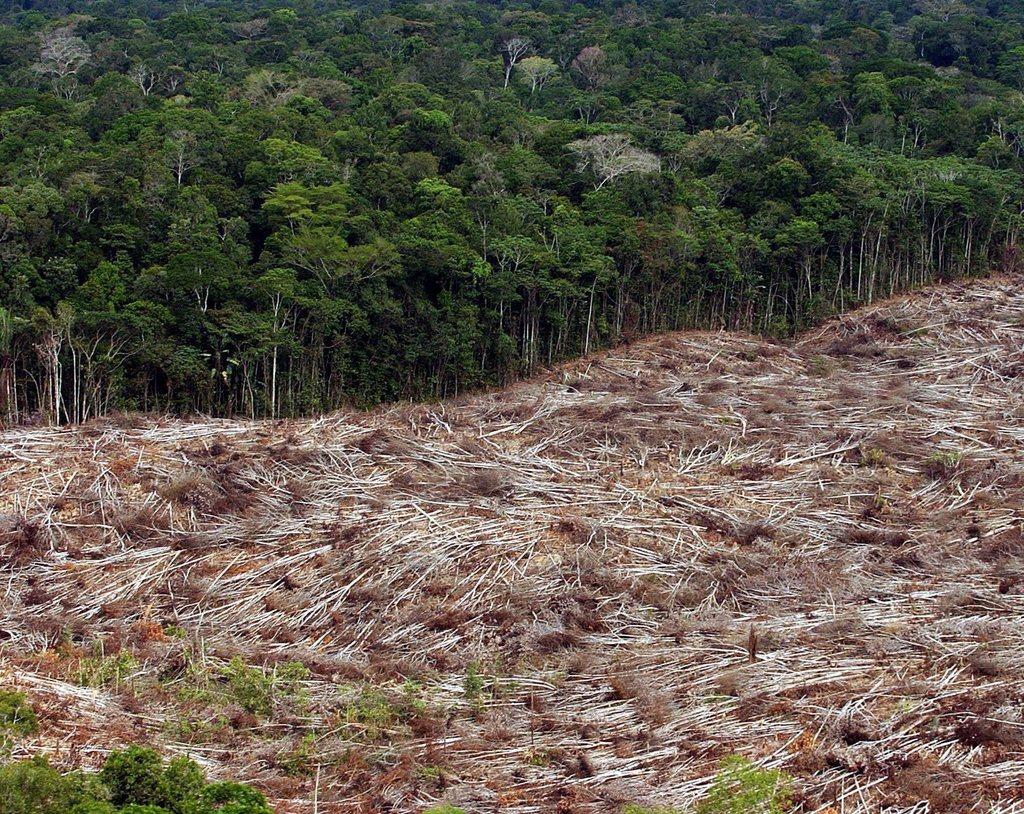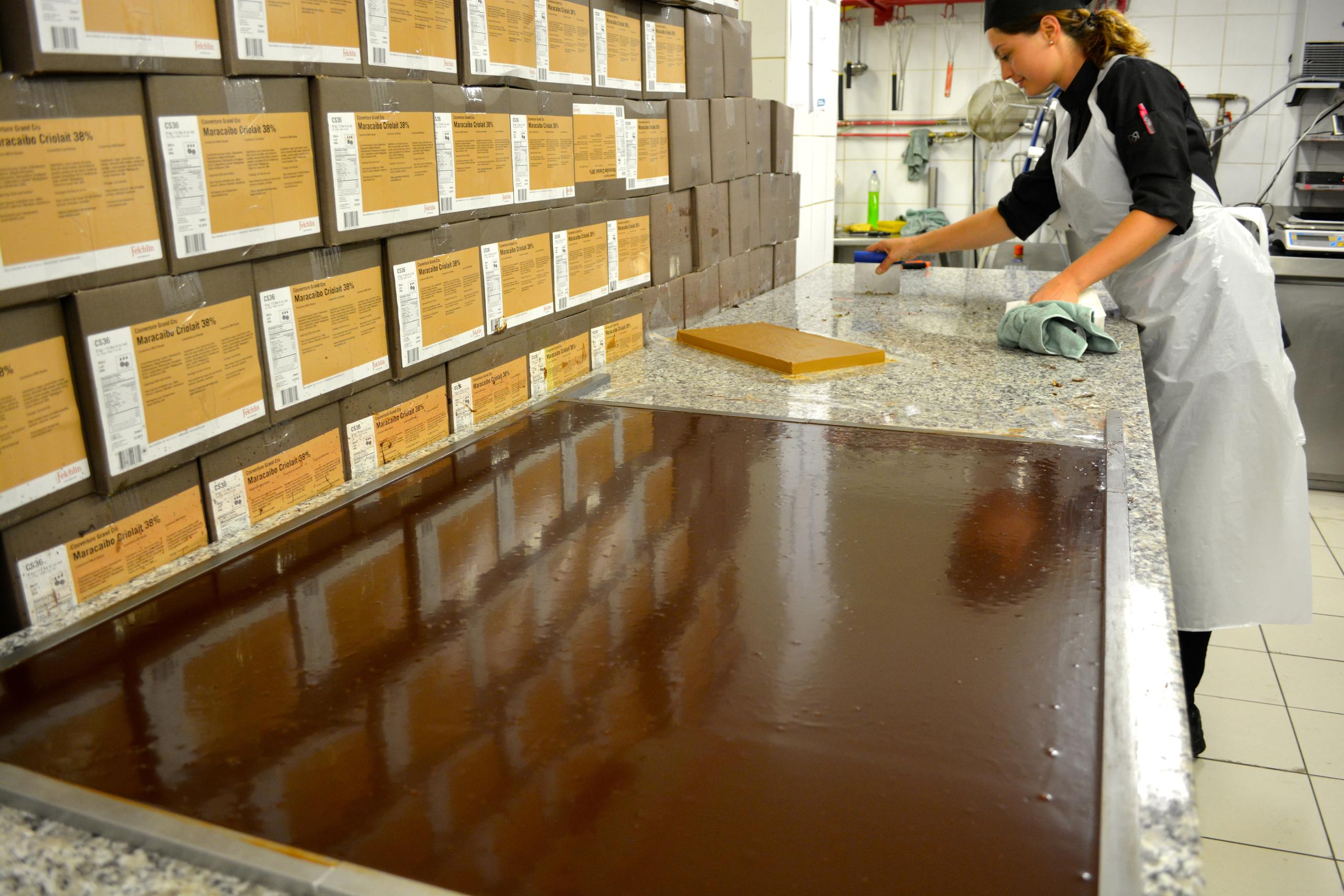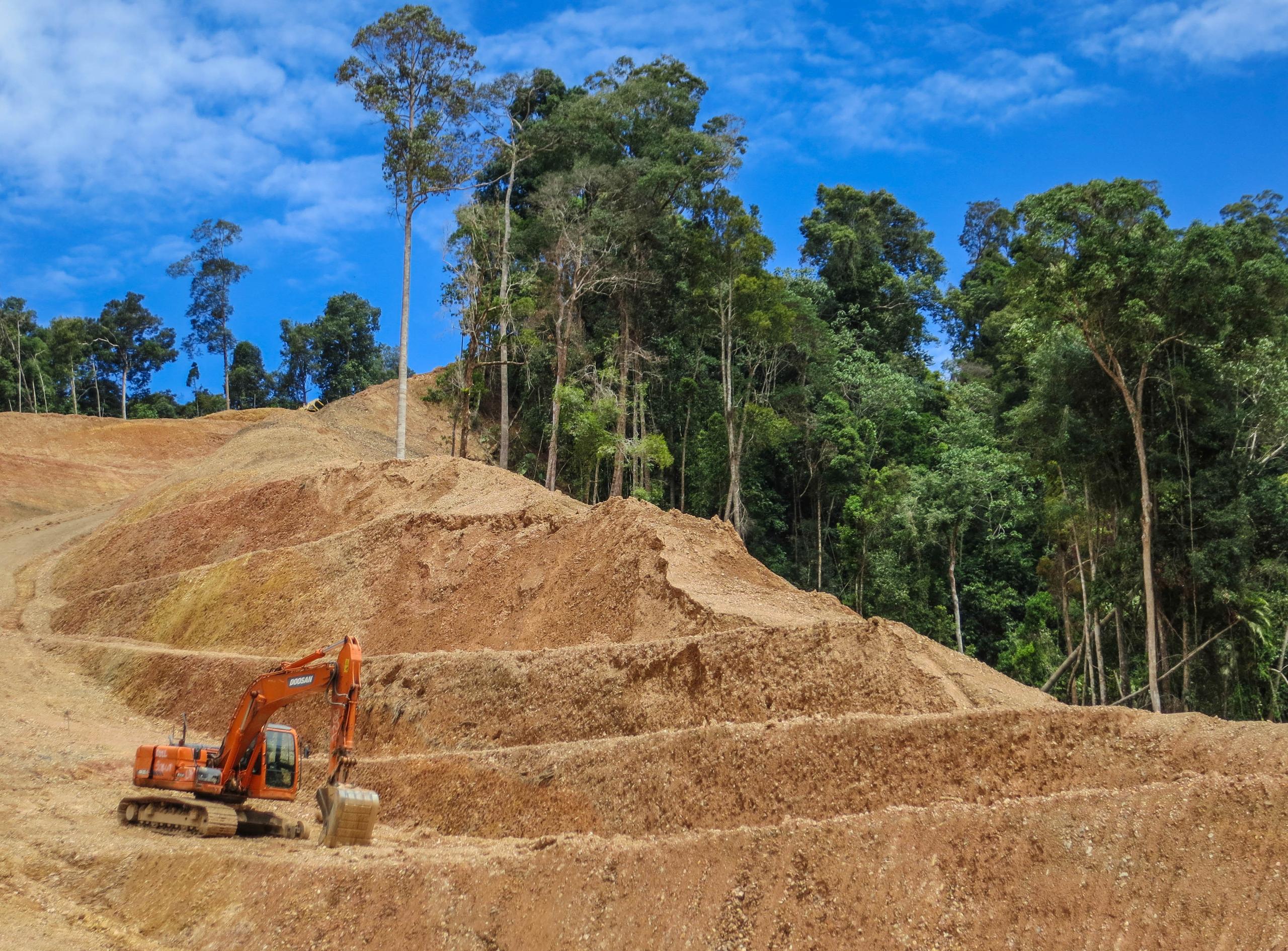Will Swiss palm oil declaration save orangutans?

Conservationists have welcomed the decision to have palm oil in products declared, but more is needed to preserve dwindling orangutan habitat in Sumatra and Borneo. The battle to save orangutans has brought together Zurich Zoo, NGOs and major retailers.
A group of orangutans in the zoo’s ape enclosure are just starting their morning activities. This involves looking for food and materials, such as cardboard boxes and straw, to make nests. In the wild, orangutans build new nests every day as they move around the rainforests in Sumatra and Borneo, the only two places they still survive. Profits from palm oil plantations have led to the cutting down of large swaths of their rainforest habitat.
From cosmetics and detergents to food stuffs – even sometimes chocolate – palm oil, cheap and versatile, is used everywhere. It used to be labelled as a “vegetable oil” but since January 2016, it must be declared as palm oil on packaging.
“It’s the only way that the consumer knows what he is eating or using it in products,” said Robert Zingg, a senior curator at Zurich Zoo.External link
Zurich Zoo was part of a 2010 European-wide campaign that garnered two million signatures calling for better protection of the threatened orangutan, which was a factor in the European UnionExternal link introducing a palm oil declaration duty in December 2014. The zoo’s 10 orangutans are part of a Europe-wide endangered species breeding programme.
In Indonesia, life does not look so good for orangutans, Zingg explained. “The rainforest is cut down at a high rate in big surfaces every year, in some cases there were developments of 11,000 km2 of rainforest cut down and replaced by palm oil monocultures.”
“Orangutans can only live in intact rainforests so with each plantation they lose a part of their habitat. Both species, the Sumatran and Bornean Orangutans are under threat so their population is estimated in Sumatra at 6,500 and in Borneo at 40,000-50,000,” Zingg told swissinfo.ch.

Demand for palm oil has skyrocketed from one million tonnes worldwide at the beginning of the 1960s to 60 million tonnes last year.
First-hand experience
Swiss biologist Regina Frey has first-hand experience of rainforest destruction in Sumatra. She is the founder of the PanEco foundationExternal link, which takes in homeless orangutans and reintroduces them into protected rainforest habitats. It has saved more than 200 apes this way.
She welcomes the declaration duty, saying it should help consumers in Switzerland shop in a conscious way. “We can’t do enough to avert this rainforest destruction catastrophe,” she said.
Direct action in Indonesia itself is quite difficult, she says. When swissinfo.ch spoke to her in early February, PanEco and other NGOs had just participated in and won a local court case against a palm oil company accused of burning down forests, illegal under Indonesian law. This is the second court case they have won in the past two years, Frey said.

More
PanEco founder Regina Frey talks about sustainable palm oil
The NGO has also been looking into how palm oil can be grown sustainably, also through a pilot project (listen to the audio).
On a global scale, there has been some progress here. The Round Table on Sustainable Palm Oil, (RSPO)External link, was founded in 2004, and includes NGOs like PanEco, the industry and the global supply chain. In Switzerland, for example, big supermarkets CoopExternal link and MigrosExternal link (also a founding member) take part. Global food giant Nestlé External linkand Lindt & SprungliExternal link, which uses palm oil in some fillings – not its solid chocolate – have also signed up.
The non-profit RSPO certifies sustainable palm oil, with strict guidelines including no virgin rainforests being cut down for palm oil plantations. Around 20% of the world’s palm oil supply is now considered sustainable.
For Matthias Diemer, head of the international project unit at the NGO WWF SwitzerlandExternal link, the main problem with the declaration duty is that it doesn’t tell you whether the palm oil was “certified by a standard such as RSPO or produced on recently deforested primary forest”. Consumers need the information to make informed choices, he argues.
Some companies are already voluntarily declaring RSPO palm oil on their products, he said.
“What needs to happen and we have been promoting this, is that companies should make a commitment for their entire procurement of palm oil so there is an assurance that if you buy a certain product from that manufacturer or retailer, palm oil has been produced in a responsible way,” he said.

More
Eyewitness in Indonesia
In 2013 WWF Switzerland published a palm oil buyers’ scorecard External linklooking at 43 Swiss-based companies’ RSPO participation and compliance found 60% used RSPO palm oil. Migros and Coop, for example, both scored highly.
The NGO will carry out a further check of international companies, including some Swiss ones, this year.
Companies at the forefront
For their part, Migros and Coop told swissinfo.ch they had already switched to declaring palm oil content in the products ahead of the 2016 deadline.
“Migros has overall been implementing consistent measures for the sustainable production of palm oil for almost 20 years and has had a pioneering role in this respect worldwide,” said the company in an email.
It uses up to 98% physically sustainable palm oil in its products. The oil comes from plantations known to it, which are RSPO certified and subject to extensive environmental requirements. “So there is no fire clearing and no planting on peat and no pesticides as set out in the Rotterdam and Stockholm agreements,” said the statement. These plantations are regularly checked by RSPO and the independent The Forest Trust.
Coop is already using up to 92.7% of physically sustainable palm oil in its own brand food (2015) and in non-food, switched a palm oil commodity in its subsidiary company, Swiss Steinfels, to a sustainable RSPO standard in 2013, “as the first retailer ever”, said spokesman Urs Meier. Migros, too, uses RSPO-certified palm oil in its non-food products.
The WWF and PanEco, as well as the companies, all agree that the RSPO standards should be tightened up further. But so far it is the only standard there is that can be used on a broad scale, and this is progress, Coop’s Meier said. The other advantage was that it was developed by all parties involved, he said.
Physically sustainable palm oil
Physically sustainable palm oil is defined as palm oil that complies with the RSPO Standard Identity Preserved, the RSPO Segregated or Bio-Suisse.
Identity preserved: Certified Sustainable Palm Oil (CSPO) is segregated and a batch of certified palm oil can be traced from farm to factory to retailer.
Segregated: certified palm oil is kept segregated from non-certified palm oil, but is blended with other batches of CSPO and cannot be traced back to a specific plantation.
Another supply chain model involves certificates: certified palm oil is not kept apart. Instead producers earn certificates, which they then sell to users (retailers, manufacturers) so that claimed volumes are matched. WWF Switzerland is expecting that, in general, more retailers will move from this method to physically sustainable palm oil.
Mass balance: Certified palm oil is mixed with conventional palm oil, but quantities are monitored administratively so that claimed volumes are matced.
In addition to the RSPO, there is also the Palm Oil Innovation Group (POIGExternal link). It aims to support the RSPO by building on and going beyond RSPO standards and commitments. The POIG Charter for Retailers and Manufacturers was released in November 2015. Migros, WWF and Greenpeace were involved in its development.
(Source: Coop, RSPO, WWF Switzerland, Migros)
What is palm oil?
The oil palm fruit produces two oils: palm oil from the fruit pulp and palm kernel oil from the seed or kernel. Palm oil is used mostly in food products: cooking, margarine, milk fat and cocoa butter substitutes. Palm kernel oil is used for things like soap, detergent, toiletries and cosmetics. New uses have emerged as well: such as a feedstock for biodiesel. Its yield can be up to tenfold higher than, for example, soya, rape and sunflower. It is cultivated in humid tropical regions: Indonesia and Malaysia account for 86% of world production. But the oil palm actually originated in West Africa and is still cultivated there. Around 80% of palm oil produced is used in the food industry globally.
(Source: European Food Information Council, RSPO)

In compliance with the JTI standards
More: SWI swissinfo.ch certified by the Journalism Trust Initiative













You can find an overview of ongoing debates with our journalists here . Please join us!
If you want to start a conversation about a topic raised in this article or want to report factual errors, email us at english@swissinfo.ch.